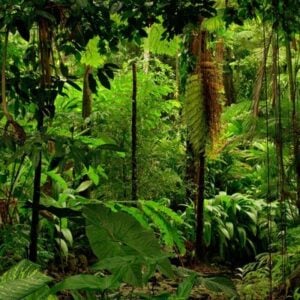The Keepers of the Earth Fund (KOEF), an Indigenous-led initiative at Cultural Survival, has announced its 2025 partnerships with Indigenous communities worldwide. Since its inception in 2017, KOEF has supported 440 projects in 42 countries with over $2.6 million in small grants, directly empowering Indigenous Peoples to design and implement their own advocacy and development projects. Using a rights-based approach aligned with the United Nations Declaration on the Rights of Indigenous Peoples, KOEF ensures that resources are equitably distributed to grassroots Indigenous collectives and traditional governments to strengthen community-driven solutions.
In its ninth year of operation, KOEF awarded $531,000 in grants to 65 Indigenous projects across 26 countries. These projects aim to mitigate the impacts of climate change, strengthen traditional knowledge, and support disaster recovery efforts. Indigenous communities are taking the lead in climate change adaptation by implementing strategies rooted in cultural practices and ecological stewardship, helping to address deforestation, biodiversity loss, and water insecurity.
Projects include river monitoring in Ecuador by the Kichwa Federation of Indigenous Organizations of Napo, climate adaptation workshops in Peru led by the Quechua, and reforestation and cultural initiatives in Costa Rica. In Paraguay, Qom women are leading efforts to protect biodiversity and water while teaching traditional medicine to younger generations. Other projects in Bolivia, Colombia, and Ecuador focus on water management and drought resilience, while in India, the Mukkuvar Indigenous community is promoting sustainable fishing practices and customary rights over ocean resources.
In Peru, Quechua communicators are addressing the erosion of ancestral knowledge caused by climate change through forums and campaigns to preserve Indigenous wisdom. These initiatives demonstrate the powerful role Indigenous Peoples play in creating long-term solutions to the climate crisis, combining environmental protection with cultural revitalization.
KOEF also provided emergency relief following the devastating floods in Nepal and Hurricane John in Mexico in 2024. Emergency funds supported food distribution, temporary shelter, crop seeds, hygiene supplies, and medical care across multiple Indigenous communities, including the Majhi, Tamang, Sunuwar, Ñuu Savi, and Me’phaa Peoples. These interventions ensured families had access to essential resources during crisis recovery while reinforcing community resilience.
Through these 2025 partnerships, KOEF continues to highlight the central role of Indigenous knowledge and leadership in addressing climate change and strengthening disaster recovery efforts. By resourcing communities directly, the fund supports both immediate survival needs and long-term sustainability, empowering Indigenous Peoples to protect their lands, cultures, and futures.







